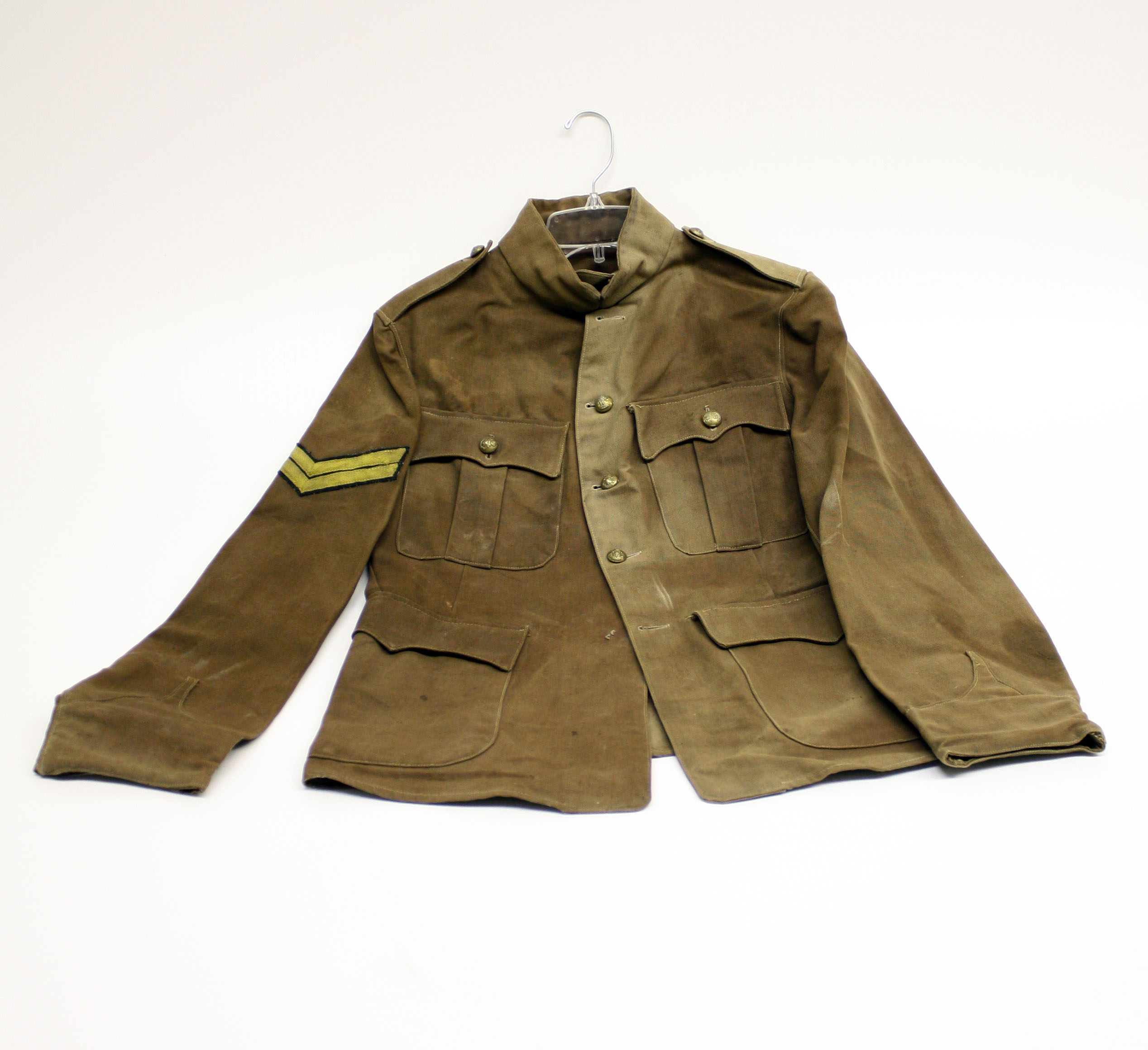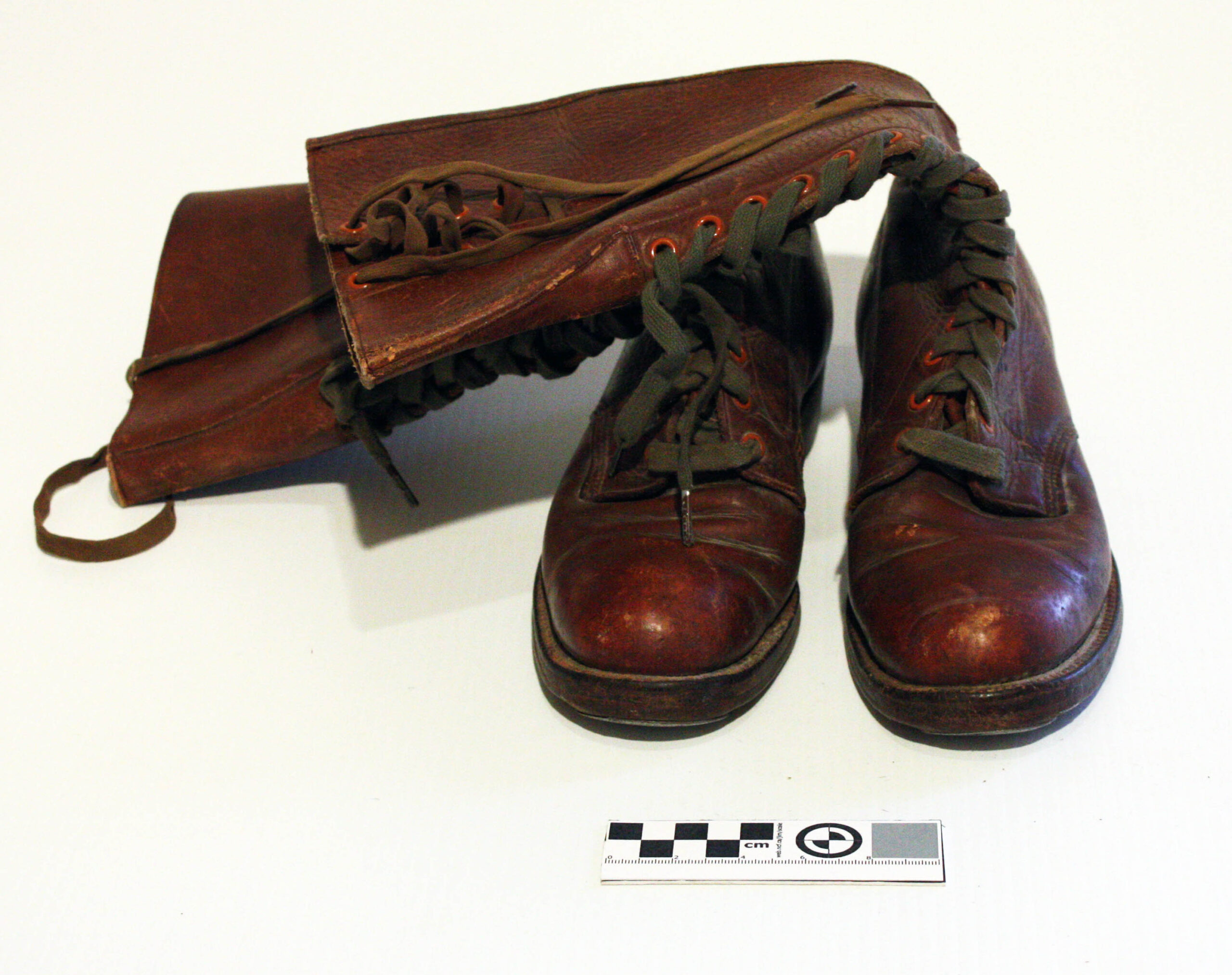NWMP Museum
Estevan Art Gallery & Museum »North West Mounted Police Wood End Post Historical Site
NWMP Museum
The name Wood End was very suiting – seeing as the post was basically the end of their natural supply of wood, due to prairie fires. Wood End was a common resting ground where supplies could be refurbished and wood could be gathered for the rest of the journey. The post was located where the Boundary Dam is now.
Originally, Wood End was a shelter to supply wood and hay, and to repair equipment for the British North American Boundary Commission, which had been sent out in the year 1872 to survey Canadian land. The NWMP’s first association with Wood End was during the March West in 1874. In 1886 Inspector J.A. McGibbon of Regina set up his summer patrol headquarters at Alameda, and had a detachment camp of 10 men and 16 horses at Wood End. In 1887 Inspector McGibbon’s men put up two sod houses at the Wood End camp. The larger of the two was used as a post room, and the smaller for the officer’s headquarters. In 1888 and 1889, summer detachments were based at Wood End where regular patrols were carried out from May until November.

In 1893 a one story frame building, 18′ x 30′, was built for the NWMP. In the same year, a 90 day quarantine on the import of US livestock was placed and quarantine duty was performed by the NWMP. During this time a 1 ½ story building, 24′ x 30′ was built.
The detachment at Wood End remained open during the winter of 1893/1894 because of the quarantine section. In 1895, a large log stable was built at Wood End, but in October of 1896 the stables, corrals, and hay were destroyed by a prairie fire.
In early 1897, the detachment was abandoned and the police officers moved into a newly built structure in Estevan. The quarantine regulations were no longer in effect. Estevan area NWMP were still responsible for border patrol, controlling horses, and cattle rustlers. The NWMP adopted the prefix of Royal in 1904, becoming the Royal North West Mounted Police. The new title was granted by King Edward VII in recognition of force’s services. They later became the Royal Canadian Mounted Police in 1920.
The ownership of the building after 1897 is unknown, however, the Andrist family purchased it in 1916, and it was used as a farm house. It was Senior Robert Andrist and his family who first made their home in the post building. Later Robert’s son Blake and his wife Sophie raised their family in the house. It was only when Sask Power purchased the homestead in 1957 that the family had to move from their home and out of the valley where the NWMP Post was situated.

In 1985 the City of Estevan relocated the building to the EAGM premises. From 1986-1989 the building was used to clean & store archaeological artefacts. In 1990, changes to both the interior and exterior of the building were undertaken, and a display of local interest artefacts was developed. In 1994 it was recommended that exhibits in the building tell the history of the NWMP as it relates to the Estevan area. RCMP artefacts were donated in 1996 by John Pott & Dawn Fehr.
More recently, the museum included history from the Métis and First Nations’ communities as they also were part of the reason for the NWMP to come West. Furthermore, the NWMP used Métis and First Nations guides and scouts during the trek west, and the museum now recognizes their contribution to the history of the NWMP and Estevan area.
Read More
The EAGM’s Artefacts Collection

Oral History
Drums
White Bear
The Pipe
Roche Percee
Language
Wood Mountain
The Rattle
Sweetgrass
Fort Quapelle
Pheasant Rump and Ocean Man Mixdown
Check Our Exhibitions!
The Estevan Art Gallery & Museum thanks the following organizations for their support:










Get In Touch!
Hours of Operation
Monday- Friday: Open 10am-6pm
Closed for lunch day from 12-1pm.
Closed Saturday & Sundays and stat holidays.
2026 Holiday Hours: Closed December 20, 2025 - January 4, 2026
